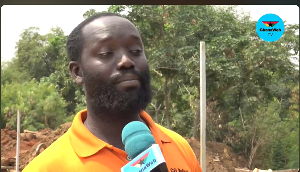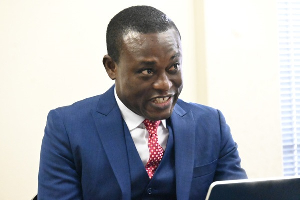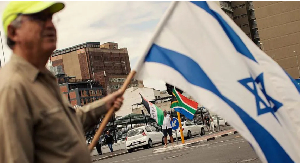Opinions of Thursday, 9 March 2017
Columnist: Bolus, Mercy Adede
Kayakaya girls
By: Bolus, Mercy Adede
The primary form of carrying heavy loads in Ghana has traditionally been on the heads of the Kayakaya girls - the indigenous "lady porters" - but the question remains why, given the availability of more modern mechanical means for many years.
This situation b egs the question: is there an opportunity to be exploited by the more entrepreneurial Kayakaya girls by embracing technology or a market for an innovative inventor to produce a product for use in this area?
The Kayakaya girls are young girls who are mostly from the North of Ghana, typically have dropped out from school or have run away from home due to being forced into early marriages. These girls are vulnerable with no career prospects to reach their full potential due to poverty. In view of their plight, life can be a very challenging period for these girls and they face lots of hazards, including physical and sexual abuse. Nevertheless, these ladies club together to form a support network for themselves.
They see this business as a way of being self reliant, so as to gain their financial independence in the city centres. The reason why these ladies can operate is because they can easily manoeuvre in the busy, congested alleys in the city centres without creating a problem. They appear to smoothly integrate with the business activities around them. If wheeled transport was used it would cause serious disruption to customers and traders.
In the local supermarkets where customers carry items in shopping trolleys it is a different experience compared to the open markets using the services of the Kayakaya girls.
On the busy streets of Accra one can easily spot middle class people using the services of Kayakaya girls while shopping in the open market. The services of the these girls are cheap and fast and help you to complete and transport your shopping quickly to your car or a taxi at a minimal cost. They have a reputation for honesty and reliability and as a result they are popular around city centres.
Risk assessment
Most of these Kayakaya girls conduct a quick risk assessment of their load. They do not have any health and safety check list to work with. However given the nature of their job one would hope that they did have check lists available.They have no health insurance cover for their own protection and safety. Kayakaya girls tend to be younger - under 40, It is not work you can do after the prime of life.
Health and safety
There seems to be no first aid point in most open markets. In addition basic health education is not routinely provided to raise an awareness of the occupational hazards that goes with this kind of business activity.
Concerns needing to be addressed.
It would be helpful to promote better health regarding good posture and the introduction of posters at bus stops/train stations in African countries would raise that awareness.
It would be helpful to create the awareness via the media as to the plight of these girls in all local languages.
There is no first aid box readily available in open markets in case of emergency treatment being needed. This is an area worth exploring.
Basic manual handling /lifting training would benefit these Kayakaya girls and empower them to know more about the ergonomics of lifting techniques and the essence of health and safety regulations if there are any locally.
Current progress:
There are many issues which is holding back their progress and aspiration of these girls. For example:
1. Lack of a bread winner in the family to pay school fees
2. Lack of free Senior High School (SHS) or vocational school to put them in the right path re their career development future plans in life
3. Lack of self worth and esteem to motivate these girls to aspire to greater things in life other than marriage
4. Lack of easy transportation from North to South for example there is no Railway system from the North to the South
Sadly parents have no choice other than push their young girls into early marriage. Those who runaway from early marriage often face a life being homeless in the cities and had to survive the storm of their dilemma as Kayaka ladies.
Ghana has no child protection policies which protects children from physical, neglect, emotional and sexual abuses for all institutions and our judiciary system. For this reason the young adult remain vulnerable and left at the mercy of few effective NGO agencies who are taking the plight into accounts. The exodus of the young girls continues as the flood our cities centres as Kayakaya ladies with Government have often turned a blind eye on their hazardous plight until this this year which is a new Era.
Today is International Women 's Day and I would like to think that Ghana would also have a child policy document which will be implemented to protect vulnerable lives. In addition, these ladies would be offered opportunities via open educational strategies in schools for example using existing classroom after school to teach them some marketing tips and some basic ICT skills.
Ghana need everyone to be economically independent and be able to fulfil their full potential in life. This is the message I will like to share today.
An authentic health professional who has worked in Ghana, many U.K top hospitals, in the community in Woking, Kingston, Surbiton, New Malden and Putney, Surrey with children and families as an expert for over 20 years and also various nursing homes. Have wealth of knowledge and experience in community development and empowerment of women in particular. Won the Regional award for South East of England in 1998.














